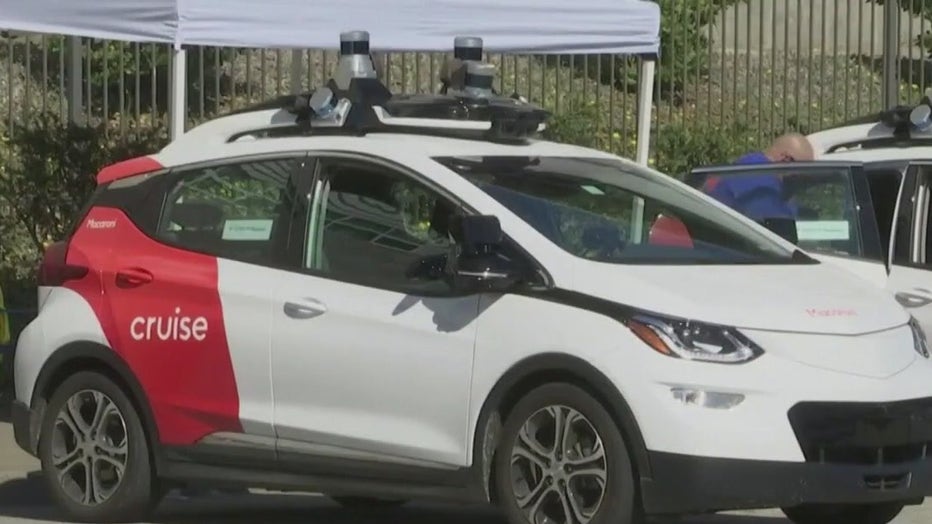California DMV suspends Cruise robotaxi license for safety concerns
CA DMV suspends Cruise robotaxi license
California has suspended autonomous vehicle company Cruise's robotaxi license because of safety concerns.
AUSTIN, Texas - California has suspended autonomous vehicle company Cruise's robotaxi license because of safety concerns.
The state's DMV says the robotaxis posted an "unreasonable risk to public safety." They didn't elaborate on specifics, but a few weeks ago, a Cruise car ran over a pedestrian who had been hit by another driver, and pinned the person under one of its tires.
Cruise released the following statement:
"We learned today at 10:30 am PT of the California DMV’s suspension of our driverless permits. As a result, we will be pausing operations of our driverless AVs in San Francisco.
Ultimately, we develop and deploy autonomous vehicles in an effort to save lives. In the incident being reviewed by the DMV, a human hit and run driver tragically struck and propelled the pedestrian into the path of the AV. The AV braked aggressively before impact and because it detected a collision, it attempted to pull over to avoid further safety issues. When the AV tried to pull over, it continued before coming to a final stop, pulling the pedestrian forward. Our thoughts continue to be with the victim as we hope for a rapid and complete recovery.
Shortly after the incident, our team proactively shared information with the California DMV, CPUC, and NHTSA, including the full video. We have stayed in close contact with regulators to answer their questions and assisted the police with identifying the vehicle of the hit-and-run driver.
Our teams are currently doing an analysis to identify potential enhancements to the AV’s response to this kind of extremely rare event."

There haven't been any known injuries in Austin caused by Cruise cars.
Adarsh Ashok, who was in the UT West Campus area, shared his reaction to the California license suspension.
"I think maybe it's a good thing just because they can iron out the safety uses a bit more...they do get confused a bit easily, maybe the AI technology needs to be worked out a bit before they start deploying it," he said.
He says he and his friend experienced a close call with a Cruise car just the day before.
"The Cruise stopped at a stop sign, and he tried walking back to his apartment, and he didn't know the Cruise was about to go, so he almost ran into it," he said. "They are a bit dangerous, they don't exactly know how to predict people."
Due to state law, cities in Texas can't regulate autonomous vehicles. However, the Austin Transportation and Public Works Department cited concerns in September regarding self-driving cars blocking first responders. They've formed a task force to collect data.
"I feel like they're a hazard, everywhere they're stopped in the middle of the road, can't get around them. I think it's a good idea, but I think it's not thought out well enough," said Rileigh Walsh, who was in West Campus.
Cruise says they are always working to improve safety, and despite the San Francisco incident, which was a rare event, their cars are safe when compared to ones with drivers.

